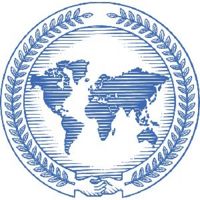Russian History: Difference between revisions
Huskerfly131 (talk | contribs) |
mNo edit summary |
||
| (5 intermediate revisions by 3 users not shown) | |||
| Line 1: | Line 1: | ||
{{Infobox | |||
| title = Russian History | |||
| header1 = Humanities Course | |||
| label2 = Course Code | data2 = [[Russian History|RUHI]] | |||
| label3 = Years of Operation | data3 = 1988-2013 | |||
| label4 = Sites Offered | data4 = [[CAR]] | |||
}} | |||
{{ | {{ | ||
CTY Courses | CTY Courses | ||
| image = [[Image:InternationalRelations.jpg|200px]] | | image = [[Image:InternationalRelations.jpg|200px]] | ||
}} | }} | ||
==Course Description== | ==Course Description== | ||
This course | This course was a survey of the history of modern Russia from the time of Peter the Great (1682) to the present. Students explored the old Romanov Empire; Russian political events and revolutions; Russia’s role in the two world wars; and Russian art, music, and literature. Throughout this historical survey, students examined major personalities such as Catherine the Great; czars Alexander I, Alexander II (the Czar Liberator), and Nicholas II; as well as Lenin, Stalin, and Gorbachev from the Soviet era. Special attention was devoted to the implosion of the Soviet Empire and the emergence of a Russia in transition under Yeltsin, Putin, and Medvedev. Students worked with primary documents in research assignments, honed their writing skills, and developed their speaking capabilities in daily discussions and final research presentations. | ||
==Class== | ==Class== | ||
From about 8:45 to 11:45, the RuHi class discusses the previous night's reading. From 1 to 2, the | From about 8:45 to 11:45, the RuHi class discusses the previous night's reading. From 1 to 2, the class does various activities, from geography games, to general discussion, to watching Soviet propaganda films. From 2-3, the class is in the Library either reading the textbook or researching for the final project. From 7-9, study hall is in the library, where the student either research or read the textbook. | ||
==FYI== | ==FYI== | ||
| Line 27: | Line 32: | ||
- '''QUIET IN THE STUDY HALL!''' Nobody likes a loudmouth when they're trying to research. | - '''QUIET IN THE STUDY HALL!''' Nobody likes a loudmouth when they're trying to research. | ||
- There is a Coke vending machine downstairs. If you get a Coke 12 oz., there is a high chance of receiving a 2nd one free. This may be fixed (writing this after 13.1), but it's cheap. | - There is a Coke vending machine downstairs. If you get a Coke 12 oz., there is a high chance of receiving a 2nd one free. This may be fixed (writing this after 13.1), but it's cheap. Still works as of 14.1 | ||
[[Category:Courses]] | |||
[[Category:Carlisle]] | |||
Latest revision as of 11:16, 25 July 2018
| Humanities Course | |
|---|---|
| Course Code | RUHI |
| Years of Operation | 1988-2013 |
| Sites Offered | CAR |
Course Description
This course was a survey of the history of modern Russia from the time of Peter the Great (1682) to the present. Students explored the old Romanov Empire; Russian political events and revolutions; Russia’s role in the two world wars; and Russian art, music, and literature. Throughout this historical survey, students examined major personalities such as Catherine the Great; czars Alexander I, Alexander II (the Czar Liberator), and Nicholas II; as well as Lenin, Stalin, and Gorbachev from the Soviet era. Special attention was devoted to the implosion of the Soviet Empire and the emergence of a Russia in transition under Yeltsin, Putin, and Medvedev. Students worked with primary documents in research assignments, honed their writing skills, and developed their speaking capabilities in daily discussions and final research presentations.
Class
From about 8:45 to 11:45, the RuHi class discusses the previous night's reading. From 1 to 2, the class does various activities, from geography games, to general discussion, to watching Soviet propaganda films. From 2-3, the class is in the Library either reading the textbook or researching for the final project. From 7-9, study hall is in the library, where the student either research or read the textbook.
FYI
For those of you taking this class:
- You will have a final project. It's an oral report; plan to speak for 15-20 minutes.
- It is suggested that you research from 2-3, and read from 7-9. The sections are long; you will want to read it all.
- Tests are on fridays. They aren't hard, nor graded. so DON'T PANIC.
- DA enjoys poking fun. It's all in good nature. Expect it.
- Enjoy yourself. This class is fun if you do what you are supposed to. Don't be afraid to participate!
- QUIET IN THE STUDY HALL! Nobody likes a loudmouth when they're trying to research.
- There is a Coke vending machine downstairs. If you get a Coke 12 oz., there is a high chance of receiving a 2nd one free. This may be fixed (writing this after 13.1), but it's cheap. Still works as of 14.1
